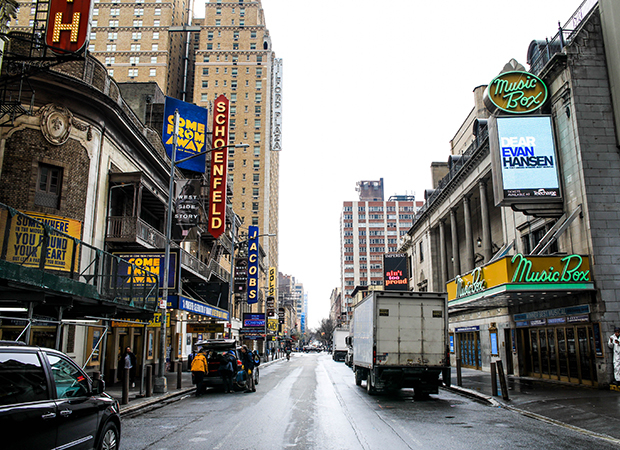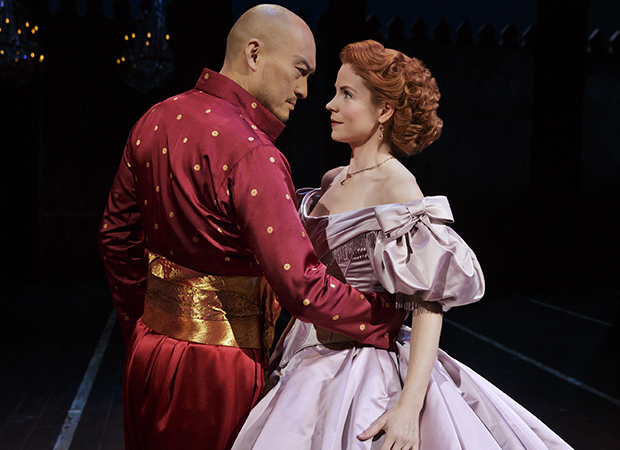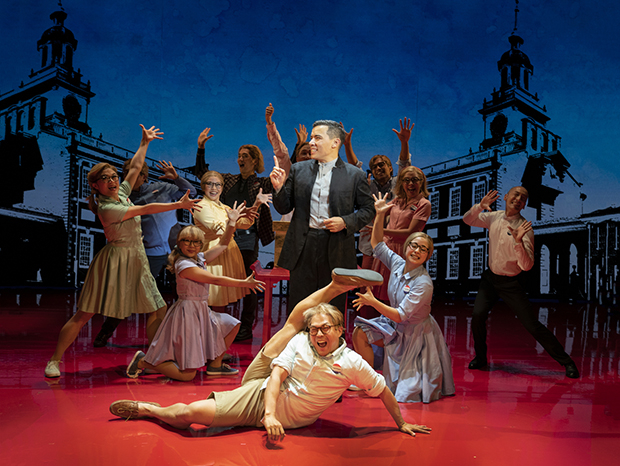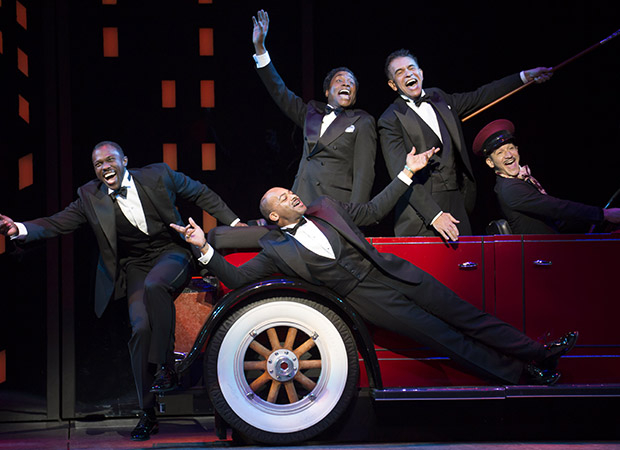How We Can Create a New Broadway Out of Its Myopic Past

(© Tricia Baron)
When I was a child I became obsessed with awards shows. From film to music to TV. If beautiful people were walking down a red carpet hoping to collect a trophy for their art, I would tune in. One evening, zapping through the channels that only seemed to play classical music, I stopped when I recognized a familiar scene. Presenters onstage. Check. Beautiful people. Check. Statuette! Check. Speeches! But what was this Broadway they were celebrating?
Growing up in Honduras, and having only visited the States to go to Disneyland (I was very little), I couldn't conceive there was a place like Broadway. You mean the movie with the nuns and the little puppet goat originated onstage? How could they fit the Alps in a theater?
When I moved to New York City in my late 20s, I realized Broadway could fit the entire universe in a theater. The Alps were nothing. But the more theater I saw, the smaller this universe became. Broadway could only fit certain galaxies. Their stars always looked the same.
Compromising my desire for representation with my passion for the performing arts, I dreamed one day I wouldn't have to conceal part of who I am and suspend my disbelief in order to love this art form so much. When Broadway reopens, that dream could come true.
The tragedy of the theater shutdown touches too many spheres to try to pay justice to all of them at once. The financial loss is devastating. To think of theater-makers without work for over a year is the stuff of nightmares. The spiritual and moral loss is unfathomable. The beating heart of the city put on hold.
As a foreigner in this country, I realized Broadway is a representation of America as it dreams itself. A place of opportunity and the promise of happiness, that has failed to deal with its troubled past. A vision not even of the present but of a future where none of the issues have been confronted.
It's understandable that when we think of Broadway reopening, there are two strong opposing forces clamoring for what it should be. There's the voice of social progress and equity, that rightfully demands New York's heart feels more like New Yorkers. That it celebrates the richness of cultures in the city that feels like the globe's capital.
There's also the voice craving a throwback. To be told familiar stories that don't demand emotional or intellectual discomfort. After a pandemic where the horrors of the world have been our constant companion on TV and online, wouldn't we all crave familiarity?
So why don't we expand the idea of family? In my dream, Broadway looks like a place of enlightenment via entertainment. A place that dazzles us with its craft, but also whispers in our ears "we see you."

(© Paul Kolnik)
I've been thinking a lot about the way in which streaming services have started to let audiences know about the historical context of what they show. It seems clumsy to ask that art be destroyed because it shows us the brutality of our past. It would doom us to repeat our mistakes constantly. Art isn't meant to educate but to enlighten, to warn us about the habits that have brought us to where we are, and invite us to be better.
Despite the subtly violent nature of xenophobia in The King and I, for example, whose heart isn't stirred by the overture? It's music achieving what plot and characterization fail to do, reaching out to our very essence. I dream of a Broadway that would give us the opportunity to book a matinee of Rodgers and Hammerstein's stunning work of art, but also an evening performance of David Henry Hwang and Jeanine Tesori's Soft Power.
An invitation to leave the binary of black and white to seek the grays. Soft Power recontextualizes the plot of The King and I, to show America what it's like to be exoticized. It's a musical that perfectly embodies what it's like to love something and to question it. More than one truth can be held at once.

(© Joan Marcus)
That same Broadway would give me a chance to see an inclusionary version of Shakespeare, perhaps fewer productions about suffering kings and more stories about whimsical love. He wrote plenty of both. But a few blocks away I could also go see Jeremy O. Harris' epic "Daddy," in which he imagined a young Black man as conflicted as Hamlet, but through a lens that clearly shows us who we are today.
This Broadway would also be keen to revive pieces by artists of color that haven't seen the light of day since their original productions. Not because they're not worth it, but because there's more comfort in safety. A revival suggests a play is a classic, but how can anything become a classic when no one has staged it in decades?
George C. Wolfe's extraordinary Shuffle Along, or, the Making of the Musical Sensation of 1921 and All That Followed, did what my dream Broadway does. It took us to the past but didn't lose the thread that made us think about the fabric of our present. It merged time and space into an electrifying experience.
It's understandable that lush musicals feel adequate given the chaos of the pandemic, no one wants to see more pain. But how is the pain in South Pacific, more bearable than the pain in Michael R. Jackson''s thrilling A Strange Loop? Why are we OK seeing the suffering of characters from decades ago and reluctant to see how others feel today?
Perhaps my dream feels too much like another compromise, why can't we have both? I've come to terms with craving those grays. We can't forget our past, but we need to see our present reflected and imagine a better future. By narrowing down its scope to discover the universe also exists in specific stories, the Great White Way can only become broader. And whose heart wouldn't be stirred by that?

(© Julieta Cervantes)










